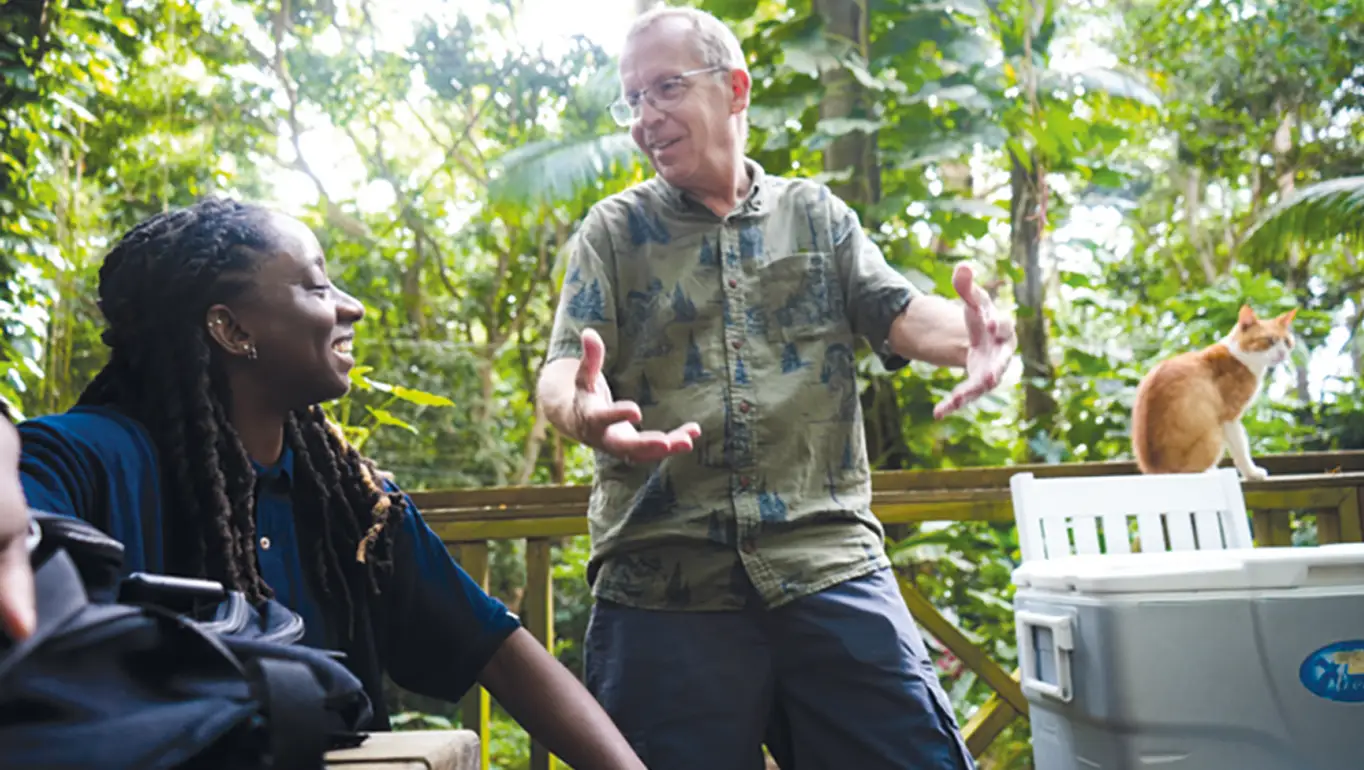After serving as Resident Coordinator (RC) for 13 countries across three duty stations, Simon Springett has led the UN House in Barbados and the Eastern Caribbean since 1 June, 2024. His eyes sparkle with passion for what he calls “one of the most motivating jobs in the UN.”
What drives you in your role as the UN Resident Coordinator?
The UN Resident Coordinator (RC), representing the Secretary-General, is the highest UN Development System (UNDS) representative at the country level, focusing on coordination, over direct program management. RCs work with governments to align UN programmes with national priorities and leverage global expertise. It’s a truly motivating job—one day you’re engaging with the International Maritime Organisation, the next with UNIDO on industrial policy, and another day in a school discussing curriculum reforms with UNICEF.
The UNDS is a pillar of the broader UN system. Without sustainable development, peace and security are difficult to achieve. What could be more rewarding than partnering with governments to improve life for communities? Choosing the UN is more than just a career path, it’s a moral and values-driven decision. With that in the back of your mind or in the front of your heart, it’s impossible not to smile when you come to work, because you know that you might not make a difference every day, but you have the opportunity to contribute to making a difference tomorrow. Some things take time and everything builds momentum, so it’s a fabulous opportunity to sit in this office every day.
What about the UN House in Barbados and the Eastern Caribbean?
The UN House in Barbados, generously donated by the government, symbolizes commitment to multilateralism. Barbados is a vibrant Caribbean hub with an ambitious global outlook. Walking in, you feel the passion and the joy.
This Multi-Country Office covers seven small states and three UK overseas territories with varying income and development levels. The challenge? Balancing regional strategy while addressing each country’s needs.
With over 340 staff across the Region -120 international and 250 national—the UN House is a hub for 23 UN entities supporting the Eastern Caribbean, 13 based in the building. This proximity enhances coordination, reduces duplication, and boosts efficiency.
It is also our ‘home.’ Here, we invite diplomats, development partners, NGOs, private sector, academia and governments for constructive conversations in a welcoming space —something deeply valued in the Caribbean.
What challenges are specific to the Eastern Caribbean?
Small Island Developing States populations (300,000 people in Barbados to just over 4,000 in Montserrat) create unique obstacles. Despite their size, they face the same governance and development challenges as larger nations. Small civil service, brain drain, high external debt, and capacity gaps challenge sustainable development ambitions.
In response, the UN focuses on offering high-quality policy support and creating opportunities for innovative development financing. We act as a connector, helping countries engage private investors or multilateral development banks, and working to de-risk investments. In Barbados, for example, the UN Office for Project Services (UNOPS) manages the renovation of Queen Elizabeth Hospital (funded by the European Investment Bank) while ensuring skills in project management and procurement are transferred to government and hospital staff.
At a time when multilateralism is under pressure, what is the UN’s added value?
One of the UN’s greatest strengths is that all stakeholders respect and trust us because of our convening power, institutional knowledge, capacities, staff and skills. Our focus is not just on efficiency but on inclusion—always asking: will the elderly, marginalized, and or rural communities benefit from this service? If not, how can we fix it? This human-centered approach is core to our DNA.
Our long-term, inclusive mindset is what sets us apart—ensuring no one is left behind. Another key value for us is that capacity-building is non-negotiable. If a project doesn’t strengthen local systems and skills, it needs to be redesigned.
Is the UNDS’s work adequately recognized?
People often associate the UN with Security Council debates and major headlines. We do our vital work quietly behind the scenes, supporting governments to help communities thrive. This isn’t about showcasing the UN, it’s about empowering countries. Still, we must share more human stories—like Michelle, a domestic abuse survivor now running a bakery thanks to government referrals supported by the UN. These stories show our true impact—not logos or billboards, but lives transformed.
Finally, how would you summarize your vision for your job?
My job is to lift people up—those I work with and those we serve. My vision for my job is where the Resident Coordinator serves the UN system, our member states, and program countries in equal measure, a vision in which we harness our collective efforts behind countries’ ambitions for just and inclusive societies. This can only be done through true partnerships and shared vision. For me, success is making people feel seen and valued. That’s simply how it should be.



